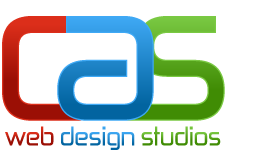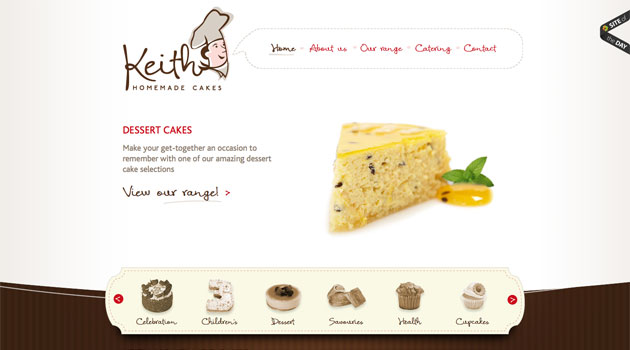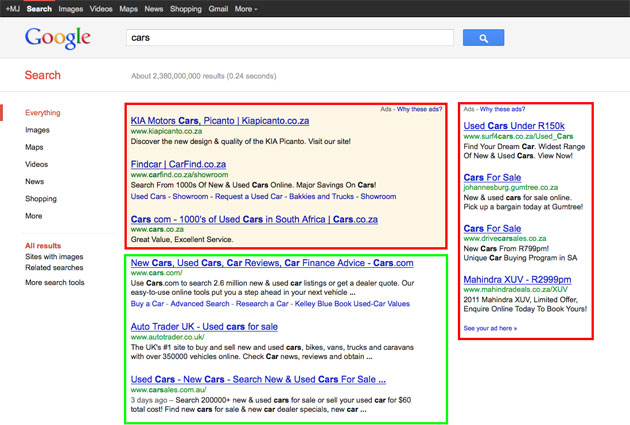 What makes a website successful? How can you get more website visitors? How can you get more leads? Those are all common questions we're asked and today we're going to share some advice. But, a successful business website depends on two major things, the actual website (the topic of today's post) and your online marketing strategy (which we'll cover next week).
What makes a website successful? How can you get more website visitors? How can you get more leads? Those are all common questions we're asked and today we're going to share some advice. But, a successful business website depends on two major things, the actual website (the topic of today's post) and your online marketing strategy (which we'll cover next week).
Your Purpose
Like many things in life, if you don't have a purpose, it's pretty much like running around in the dark. This is pretty simple but so crucial.
Any successful business has a defined target market. Your target market consists of age groups, gender, interests, demographics, abilities etc. For your website (and business) to be effective, you need to have a clear picture of who your market consists of. All of this will help you determine your purpose.
With your purpose in hand, your website can be created and the message crafted to sell your ice-creams to Eskimos. Which leads us to the next point...
Content is King
Sure you've heard that a lot but it's pure truth. Any piece of marketing is nothing without some good content. And no, content isn't just text, it's your images and CTAs (Call To Actions) as well. Content is your entire message. What are the key elements of good content?
- Your content needs to be created for your target market. With the information you learned about your target market, craft your message for them! If your message can interact with them the same way they interact with others, you'll instantly have their attention!
- Your content needs to be informative. If people visit your website and they can't tell within seconds what kind of service/product it is that you're offering, your website will fail! Also, once they want more information, it needs to be easily available and informative but in the simplest way.
- Your content needs to be unique and fresh. In this age of the internet, your competitors are no longer just those in your immediate surroundings. So your message needs to be unique and updated regularly, or you'll lose your potential customer very quickly.
Loading Time
The internet has conditioned us to want things immediately. If it takes too long, we'll find another solution. This applies to your website as well. If you keep users waiting you'll be sure to find them on your competitor's website. Make sure:
- You optimize your images. This is the number one cause of slow websites. Make sure you don't use unnecessary images, save them in the right format, and compress them with tools like Smush.it , JPEGmini , and PunyPNG
- Optimize your website code. Another usual culprit. Your website code matters a lot. Not just in terms of loading time but SEO (Search Engine Optimization) as well. Make sure you (or your web designer) don't use Tables for the layout of your website or any type of code generator. Well written hand coded websites go a long way!
- Remove unnecessary elements or code. Some times we chop and change a lot of things, but don't always remove pointless code or content. Make sure you review your website every few months to tidy up "the house".
Navigation
Your website navigation is a key part of your website. Without some good navigational structure, your website will feel like a black hole. It's always nice to be unique and different, but when it comes to navigation nothing works as good as common practices. Top or left navigation works wonders, as it's found on nearly every website. If a user needs to learn how to use your website you've definitely failed!
Good navigation helps your customers get where they want to, tells them what's available on your website and makes it real easy for them to reach you or purchase your services/products.
Usability
Usability involves making it easy for your visitor to understand and navigate your website. The two points above, Navigation and Loading Time, falls under usability, but are far from the only factors of it.
The main thing to remember is people have short attention spans. So your success hinges on the following:
- Make your website load fast
- Immediately grab their attention (this doesn't mean you need flashy elements or text that scrolls!)
- Tell and show them where to go (this is commonly known as a CTA or Call To Action)
- Provide more information for those that don't follow through on your CTA and provide secondary CTA's
- Keep consistent page structures. If you're using a left sidebar, stick to it through your entire site don't chop and change on every other page.
The clearer your marketing message is, the easier it will be for customers to understand what you do and how to find what they're looking for.
Design
The Pièce de résistance of your website. It's the layout of the content, the colour scheme, and all the imagery. It's difficult for your average person to point out the exact elements of a great design, but amazingly, we can all tell what it looks like. People know what looks professional and what looks cheap. So maybe you should think twice before getting a website done for a R1000.00!
Key points to consider:
- Add some of your personality . Whether it's your business's personality or yours. This will set you apart from your competition. Business should be professional, but it doesn't mean you need to be cold and boring. It also doesn't mean you need to be a clown. Just be you!
- KISS. We all know it. Keep It Simple Stupid! Sure, we all like being creative but don't overdo it. Too many "creative" elements may actually distract from your marketing message and ultimately affect your conversion ratios.
A great design is one that's pixel perfect, but enhances your marketing message, not distract from it!
Analyze
Lastly, analyze analyze analyze. Your website will never be complete! Nothing is ever perfect. But if you analyze, you can move closer to perfection. Using visitor analytic tools, eye tracking tools, and split testing tools you can make sure that your website is as usable as you think it is. If you don't measure your website's performance, you won't know if you're reaching your goals.
So make sure your web design company or designer can perform these tests and implement the changes when needed.
Conclusion
As you can see, a successful business website can be pretty complicated. Although this may not be an exhaustive list of tips and guidelines, not many web design companies follow even half of these, and this is only part 1.
Next week we'll be discussing the marketing strategy of successful business websites.
Does your business website follow some or all of these guidelines or not at all? Tell us about it in the comments below...









